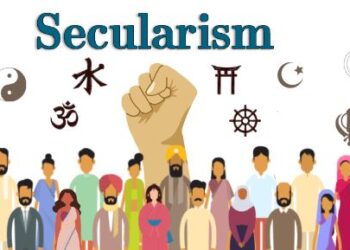The age old restriction on women of 10-50 age group on entering the Sabarimala temple in Kerala has come to an end after the Supreme Court of India lifted the restriction, dispensing gender justice for all the worshipping women devotees.
The Constitution bench comprising 4:1 judges has spelt out the rights of woman (devotees) who form half of the population. The judgment has got many ramifications on the discriminatory and restrictive treatments meted out to the devotees worshipping the same deities in temples.
The birth based discrimination inflicted on women (devotees) on the basis of the biological occurrences of periodical nature consequently faces injustice from the temple authorities. The bastion of such grave injustice has been demolished as the result of the judgment of the Supreme Court of India. The restriction was imposed on the entry of women of 10-50 age group as if the menstrual cycle would not have commenced in the age group of up to 10 years and the menopause would have reached among the group of above 50 years. Menstruation among women is a natural, physical process that cannot be an impurity in exercising the right of worship. Menstruation among women is like other physiological process, like perspiration, experienced by all humans. Can entry be denied to the devotees pointing out their perspiration process as a symbol of impurity or pollution on the omnipresent ‘god’?
The Constitution’s transformative character has been proved by the present judgement of the Supreme Court of India, thereby upholding the fundamental rights – the right to equality, and the right to worship. The right of women to dignity is protected. The remnants of discrimination at the worshipping yard exercised as the right of religious denomination has been wiped out by the pronouncement, “the devotees of Lord Ayyappa are exclusively Hindus and do not constitute a separate religious denomination” by the Chief Justice of India.
Religions freedom guaranteed under Articles 25 and 26 of Indian Constitution is not an unfettered freedom.
The judgement is a land mark and milestone in ensuring the women the right of equality and the right of dignity. These rights were denied to women devotees in Sabarimala temple, pointing out the celibacy of the presiding deity, ‘Ayyappa’. Strangely, menstrual phase celebration is already in practice in certain Hindu temples. The menstrual period of the woman deity viz. Bhagwathi is celebrated with significant devotion (glorifying the sanitary napkin worn by the female deity) by the devotees without any gender discrimination in Kerala. Homogenisation of prevailing practices must be prioritised by the Hindu protagonists and not infringing the rights of other religions to bring ‘a mono culture’ for the country.
‘Prohibition of women in certain age group is a form of untouchability’ – the pronouncement is the master stroke of the Supreme Court judgment upholding the relevance and the validity of the Article 17 that says, ‘Untouchability is abolished and its practice in any form is forbidden. The enforcement of any disability arising out of ‘untouchability’ shall be an offence punishable in accordance with law’
The expectation of a reasonable and dutiful citizen has been accomplished through the pronouncement of the Supreme Court judgement. Let it not be an end but continue to root out the multitude of discriminatory practices on religious front!
We appreciate the efforts taken by the progressive youths, women forums and the present Marxist led State Government in Kerala. Since the proof of the pudding is eating the sooner the entry by women, the better it will be for gender Justice!









